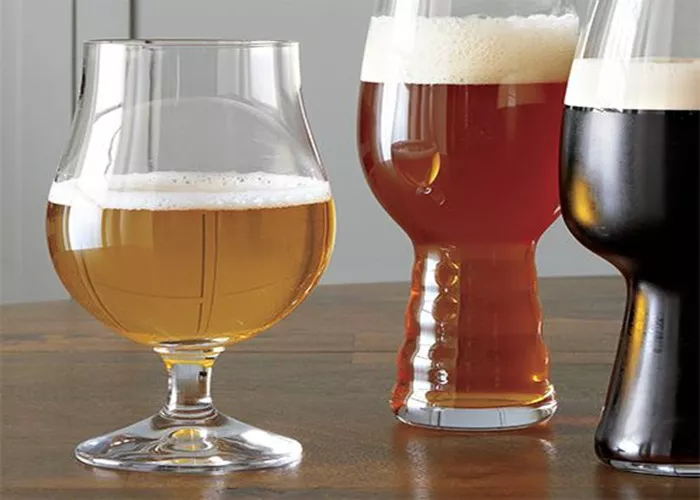Brewing beer is a complex and time-consuming process that requires precision, patience, and artistry. The time it takes for a brewery to brew beer can vary depending on several factors, including the type of beer being brewed, the brewing method used, and the size and capacity of the brewery. In this comprehensive guide, we will explore the various stages of the brewing process and determine how long each stage takes, as well as the factors that can affect the overall brewing time.
The Brewing Process
1. Mashing:
The first stage of brewing beer is mashing, which involves mixing crushed malted grains with hot water to convert the starches in the grains into sugars. This process typically takes 1 to 2 hours.
2. Lautering:
After mashing, the liquid wort is separated from the spent grains in a process called lautering. This can take anywhere from 30 minutes to an hour.
3. Boiling:
The wort is then boiled for a period of time to sterilize it, extract flavors from the hops, and coagulate proteins. Boiling usually lasts for 1 to 2 hours.
4. Hop Addition:
Hops are added at different times during the boiling process to impart bitterness, flavor, and aroma to the beer. The timing and quantity of hop additions can vary depending on the type of beer being brewed.
5. Cooling:
After boiling, the wort is quickly cooled to a temperature suitable for yeast fermentation. This can take anywhere from 30 minutes to an hour.
6. Fermentation:
Yeast is added to the cooled wort, and the fermentation process begins. Fermentation can take anywhere from a few days to several weeks, depending on the type of yeast used and the desired flavor profile of the beer.
7. Conditioning:
Once fermentation is complete, the beer is transferred to conditioning tanks where it is allowed to mature and develop its flavors. Conditioning can take anywhere from a few weeks to several months.
8. Bottling/Kegging:
Finally, the conditioned beer is bottled or kegged for distribution. This process can take anywhere from a few hours to a full day, depending on the size and capacity of the brewery.
Factors Affecting Brewing Time
1. Type of Beer:
Different types of beer require different brewing times. For example, a light lager may take less time to brew than a complex stout or an aged barleywine. The brewing time for a particular beer style is influenced by factors such as the malt bill, hop schedule, yeast strain, and fermentation temperature.
2. Brewing Method:
The brewing method used by a brewery can also affect the brewing time. Some breweries use traditional batch brewing methods, while others use continuous brewing systems. Continuous brewing systems can produce beer more quickly than batch brewing methods, but they require a significant investment in equipment and infrastructure.
3. Size and Capacity of the Brewery:
The size and capacity of a brewery can also impact the brewing time. Larger breweries with more advanced equipment and a higher production capacity can often brew beer more quickly than smaller breweries. However, larger breweries may also have more complex brewing processes and stricter quality control standards, which can add to the overall brewing time.
4. Yeast Strain:
The yeast strain used in the fermentation process can have a significant impact on the brewing time. Different yeast strains ferment at different rates and produce different flavor profiles. Some yeast strains are known for their fast fermentation times, while others are more slow and deliberate.
5. Temperature and Fermentation Conditions:
The temperature and fermentation conditions can also affect the brewing time. Yeast ferments best within a specific temperature range, and maintaining the correct temperature throughout the fermentation process is essential for producing a high-quality beer. If the temperature is too high or too low, the fermentation process can be slowed down or even halted.
See Also: Can You Cook Food With Beer?
Tips for Optimizing Brewing Time
1. Plan Ahead:
Breweries should plan their production schedules in advance to ensure that they have enough time to complete each stage of the brewing process. This includes ordering ingredients, scheduling equipment maintenance, and allowing for sufficient fermentation and conditioning time.
2. Use Efficient Equipment:
Investing in efficient brewing equipment can help reduce brewing time. This includes using modern mash tuns, boil kettles, and fermentation tanks that are designed to optimize heat transfer and process efficiency.
3. Monitor Fermentation Conditions:
Closely monitoring fermentation conditions, such as temperature and yeast activity, can help ensure that the fermentation process is proceeding as planned. This can help breweries identify and address any issues early on, reducing the risk of delays.
4. Streamline Processes:
Breweries can look for ways to streamline their brewing processes by eliminating unnecessary steps or reducing waste. This can include using automated systems for tasks such as ingredient handling and bottling/kegging.
5. Train Staff:
Proper training of brewery staff can help ensure that everyone is familiar with the brewing process and knows how to operate the equipment safely and efficiently. This can help reduce errors and delays and improve overall productivity.
Conclusion
The time it takes for a brewery to brew beer can vary depending on several factors. On average, the brewing process can take anywhere from a few days to several months, depending on the type of beer being brewed, the brewing method used, and the size and capacity of the brewery. By understanding the various stages of the brewing process and the factors that can affect brewing time, brewers can better plan their production schedules and ensure that they are producing high-quality beer in a timely manner.
You might be interested


